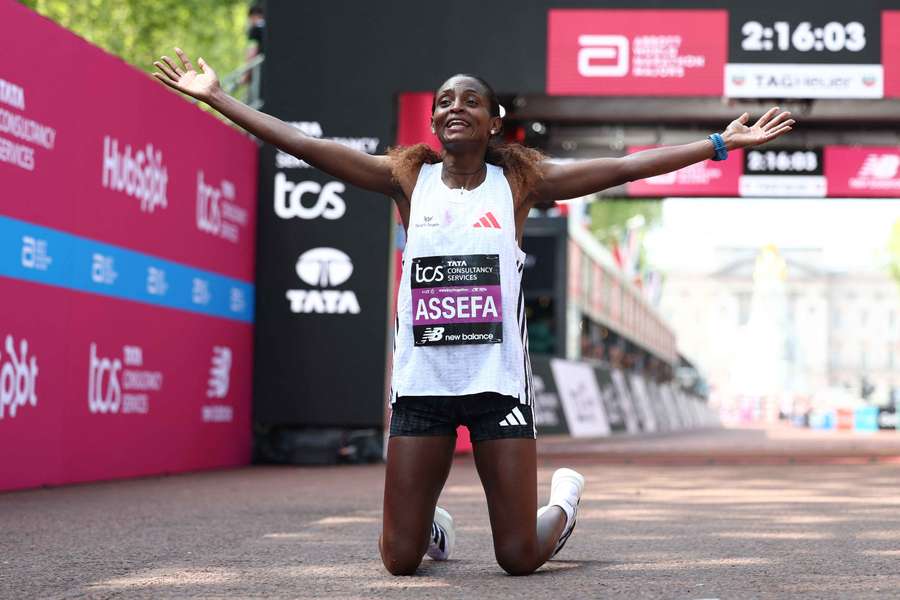The 28-year-old Assefa finished well clear of Kenya's Joyciline Jepkosgei, whilst Sifan Hassan, who edged Assefa for Olympic gold in Paris last year, was third.
"I was second last year, so to win here this year is very special," Assefa told the BBC, speaking through an interpreter.
"Last year I had trouble with the cold weather, and my hamstring tightened up.
"This year suited me much more, and found it a lot easier."
Assefa, Jepkosgei and Hassan, who gained 10 kilos on taking a four-month break following her win in Paris, dominated the race from the outset.
However, Hassan, 32, dropped off the lead group of four, which was setting a red-hot pace - on course at the time for two hours 12 minutes, a minute faster than her own personal best - and found herself around 20 metres adrift of them.
Hassan then rejoined the group but was dropped again and trailed Assefa and Jepkosgei, along with the final pacemaker, at the halfway mark at Tower Bridge.
Hassan nevertheless kept them in her sights, hoping that once the pacemaker dropped off the lead two would dally over who took on the pace, which was the error the pacesetters committed in 2023 and played into the hands of the Dutch star.
Far from suggesting she could reel the front two in - the pacemaker finally having dropped off - Hassan's running style became a bit ragged, and the lead grew.
At 30km, Hassan was over a minute off the pace with Jepkosgei and Assefa exchanging, setting the pace.
The 32-year-old remained a comfortable third and was applauded along the way by non-professional runners, who were further down the route.
Assefa made her break just after the two-hour mark, leaving Jepkosgei in her wake.
Such was the pace left in her legs, Assefa had a lead of almost over a minute on a rapidly tiring Jepkosgei at the 40km mark.

